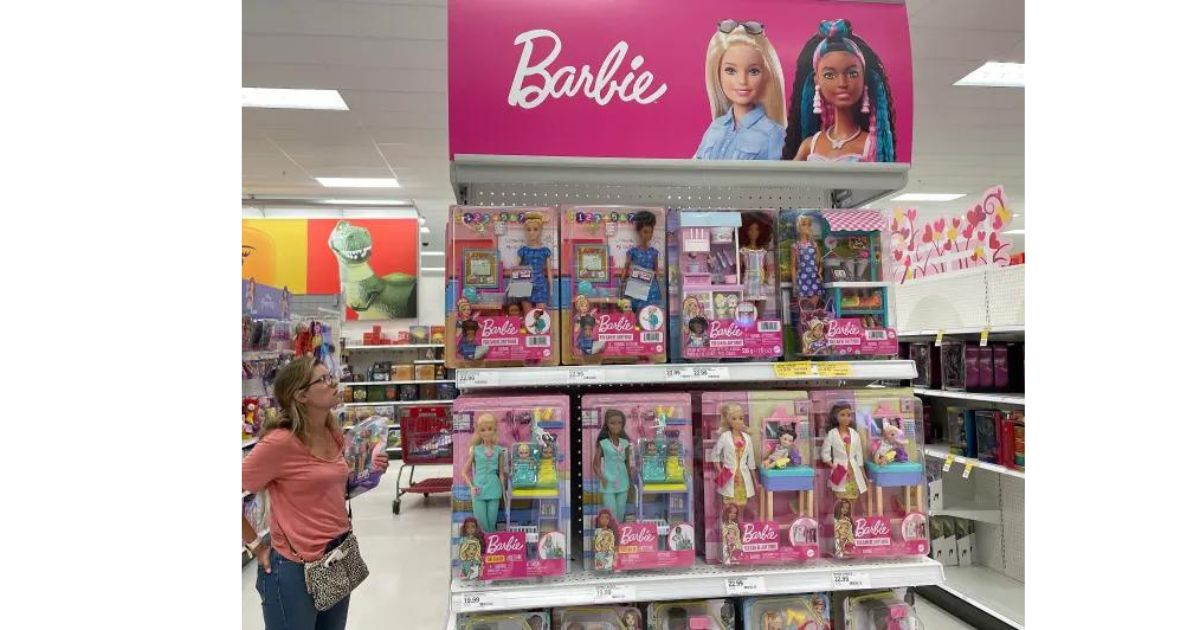In an unexpected twist, psychologists are exploring the therapeutic benefits of dolls, specifically Barbie dolls, in promoting emotional well-being among adults. The idea of “Emotional Support Barbies” has gained traction as a novel approach to improving mental health.
Traditionally associated with children’s playtime, Barbie dolls have found a new role in addressing the emotional needs of adults. Dr. Sarah Walker, a prominent psychologist and researcher in the field of mental health, has been at the forefront of this intriguing development.
Dr. Walker’s interest in “Emotional Support Barbies” stemmed from her work with patients who struggled with emotional regulation and coping mechanisms. Many of these patients faced challenges such as anxiety, depression, and stress, and conventional therapies often fell short in addressing their unique needs.
“I was inspired by the concept of comfort objects,” Dr. Walker explained. “Children often form attachments to objects like stuffed animals or blankets, which provide them with a sense of security and comfort. I wondered if adults could benefit from a similar concept.”
Potential Of Emotional Support Barbies
This curiosity led Dr. Walker to conduct a groundbreaking study exploring the therapeutic potential of dolls for adults. The study involved participants aged 18 to 65, with diverse backgrounds and varying degrees of emotional distress.
Over the course of several months, participants were introduced to “Emotional Support Barbies” and encouraged to interact with them in various ways.
The results of the study were both surprising and promising. Dr. Walker and her team found that engaging with these dolls had a measurable impact on participants’ mental well-being. The “Emotional Support Barbies” provided a source of comfort, companionship, and emotional outlet for many participants.
One participant, Sarah, described her experience with the doll as transformative. “At first, I was skeptical about the whole idea,” she admitted. “But as I started talking to the Barbie, I found myself opening up about my feelings and concerns in ways I hadn’t before. It felt like a weight was lifted off my shoulders.”
The therapeutic effects extended beyond verbal communication. Participants reported reduced feelings of loneliness and anxiety when interacting with the dolls. They often used the dolls as a means of self-soothing during times of distress, effectively helping them manage their emotions.
Dr. Walker emphasized that the success of “Emotional Support Barbies” was not solely due to the dolls themselves but also the act of engaging with them. “The process of externalizing one’s thoughts and feelings, even to an inanimate object, can be incredibly therapeutic,” she explained. “It allows individuals to process their emotions and gain a new perspective on their challenges.”
This approach to mental health is not entirely novel, as some therapeutic practices already incorporate the use of symbolic objects or art therapy. However, the use of dolls like Barbie introduces a familiar and accessible element into the process.
It’s worth noting that “Emotional Support Barbies” are not meant to replace traditional therapeutic methods or mental health professionals. Instead, they serve as a complementary tool that individuals can use to enhance their emotional well-being.
The idea has garnered attention from mental health practitioners and organizations. Some therapists have begun integrating “Emotional Support Barbies” into their sessions, especially when working with clients who struggle to express their emotions verbally.
Additionally, mental health support groups have explored the concept as a way to foster connections and mutual support among participants.
Dr. Walker believes that the potential applications of “Emotional Support Barbies” are vast. “We’re just scratching the surface,” she said. “There’s potential for these dolls to assist individuals dealing with various mental health challenges, from anxiety and depression to trauma and grief.”
Despite the initial skepticism surrounding the concept, “Emotional Support Barbies” have demonstrated their ability to provide comfort and emotional relief for adults facing mental health difficulties.
As researchers continue to explore this innovative approach, it may become a valuable tool in promoting emotional well-being and resilience among individuals of all ages.




























